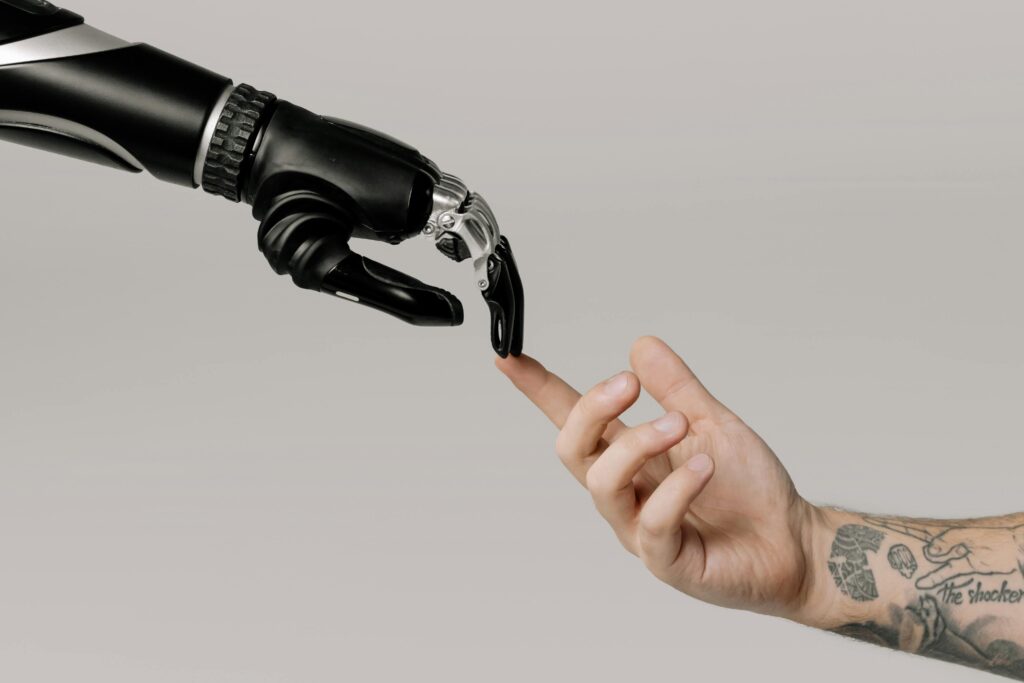The rapid advancement of artificial intelligence (AI) and automation has ignited a global debate: Will these technologies destroy jobs or create new opportunities? Opinions are sharply divided. Some economists warn of massive job losses, while others argue that AI will generate entirely new industries and roles.

This article provides a deep, evidence-based analysis of AI’s impact on employment. We will examine:
- Which jobs are most vulnerable to automation
- New career opportunities emerging from AI adoption
- How businesses and workers can adapt to these changes
- Government policies that could mitigate job displacement
- Ethical concerns surrounding AI in the workplace
By the end, you will have a clear understanding of whether AI is a threat, an opportunity, or a mix of both—and what steps you can take to future-proof your career.
How AI and Automation Are Reshaping the Workforce
1. The Current State of AI in the Workplace
AI is no longer a futuristic concept—it is already embedded in many industries. Businesses use AI for:
- Automating repetitive tasks (e.g., chatbots, robotic process automation)
- Enhancing decision-making (e.g., predictive analytics in finance)
- Improving efficiency (e.g., AI-driven logistics optimization)
A 2023 McKinsey report found that 70% of companies now use AI in at least one business function. The most common applications include:
- Customer service (AI-powered chatbots like ChatGPT)
- Manufacturing (robotic assembly lines)
- Healthcare (AI-assisted diagnostics)
- Finance (fraud detection algorithms)
2. Why Companies Are Adopting AI at Record Speed
Several factors drive AI adoption:
- Cost reduction – AI can perform tasks 24/7 without salaries or breaks.
- Increased accuracy – Machines make fewer errors than humans in repetitive tasks.
- Scalability – AI systems can handle massive workloads instantly.
For example, Amazon’s warehouses use over 750,000 robots for sorting and packing, reducing labor costs by 40%. Similarly, banks like JPMorgan Chase use AI to review legal documents in seconds—a task that once took lawyers thousands of hours.
3. The Double-Edged Sword of Automation
While AI boosts productivity, it also displaces workers. The World Economic Forum predicts 85 million jobs could be lost to automation by 2025. However, it also estimates 97 million new roles may emerge in AI-related fields.
This shift means:
- Low-skill jobs are most at risk (e.g., cashiers, factory workers)
- High-skill jobs will evolve (e.g., doctors using AI diagnostics)
- New hybrid roles will appear (e.g., “AI trainers” who teach machine learning models)
The key challenge is ensuring workers can transition into these new roles through education and policy support.
Jobs Most at Risk from AI and Automation
1. Manufacturing and Warehouse Jobs
Robots now handle:
- Assembly line tasks (e.g., car manufacturing)
- Packaging and sorting (e.g., Amazon’s fulfillment centers)
- Quality control inspections (AI vision systems detect defects faster than humans)
A study by Oxford Economics predicts 20 million manufacturing jobs could be automated by 2030.
2. Administrative and Data-Entry Roles
AI software like UiPath and Automation Anywhere can:
- Process invoices
- Manage payroll
- Sort emails
- Extract data from documents
This reduces demand for clerical workers.
3. Retail and Customer Service Jobs
Self-checkout kiosks and AI chatbots (like those used by Walmart and Bank of America) are replacing:
- Cashiers
- Telemarketers
- Basic customer support agents
4. Transportation and Delivery Jobs
Self-driving trucks (Tesla Semi) and drone deliveries (Amazon Prime Air) threaten:
- Truck drivers
- Delivery personnel
- Taxi drivers
5. Routine Healthcare Tasks
AI is automating:
- Medical transcription
- Radiology scans (AI detects tumors with 95%+ accuracy)
- Pharmacy dispensing
While doctors and nurses remain essential, support roles are declining.
New Job Opportunities Created by AI
1. AI and Machine Learning Specialists
Demand for AI experts has surged by 74% annually (LinkedIn, 2024). Roles include:
- Machine Learning Engineers (design AI models)
- Data Scientists (analyze AI-generated insights)
- AI Researchers (develop next-gen algorithms)
2. Robotics Technicians and Engineers
As factories adopt more robots, skilled workers are needed to:
- Install machines
- Perform maintenance
- Troubleshoot errors
3. AI Ethics and Compliance Officers
Companies need professionals to ensure AI is:
- Unbiased
- Transparent
- Compliant with regulations (e.g., GDPR)
4. Human-AI Collaboration Managers
These professionals oversee workflows where humans and AI work together, such as:
- AI-assisted design teams
- Customer service teams using chatbots
- Doctors using diagnostic AI
5. Cybersecurity Experts
As AI systems expand, so do cyber threats. Companies need specialists to:
- Prevent AI hacking
- Secure automated systems
- Monitor AI behavior for risks
How Workers Can Adapt to an AI-Driven Economy
1. Upskilling and Reskilling Strategies
Workers should focus on:
- Learning AI tools (e.g., Python, TensorFlow)
- Developing soft skills (e.g., creativity, emotional intelligence—areas AI can’t replicate)
- Pursuing certifications (Google AI, IBM AI Engineering)
2. Government and Corporate Training Programs
Countries like Singapore and Germany offer free AI training to citizens. Companies like Amazon and Microsoft provide employee upskilling programs.
3. Entrepreneurship in the AI Era
AI lowers barriers to starting businesses by automating tasks like:
- Marketing (AI-driven ads)
- Customer service (chatbots)
- Logistics (automated inventory systems)
Conclusion: Is AI a Threat or Opportunity?
The answer is both. AI will eliminate many jobs but also create new ones. The key is adaptability. Workers who embrace lifelong learning and transition into AI-augmented roles will thrive. Governments and businesses must invest in education and safety nets to ensure a smooth transition.
FAQs
Q: Will AI take all jobs?
A: No. While AI will automate repetitive tasks, jobs requiring creativity, empathy, and complex decision-making will remain.
Q: What jobs are safest from AI?
A: Roles in healthcare, education, and creative fields (e.g., artists, therapists) are least likely to be fully automated.
Q: How can I future-proof my career?
A: Learn AI-related skills, focus on adaptability, and stay updated on industry trends.

